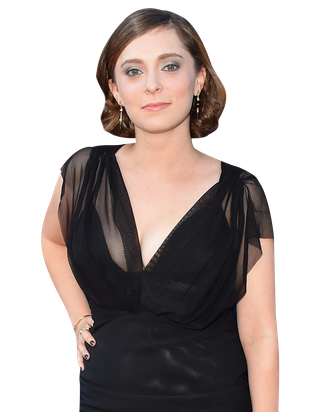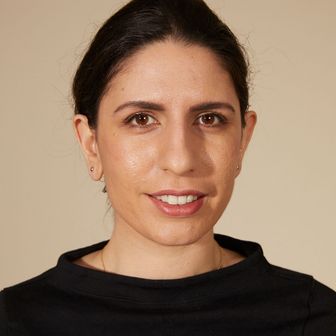
Over the past few years, comedian Rachel Bloom found her niche online with a series of music videos that balanced biting critiques of pop-culture tropes with a generally good-natured spirit. Her new rom-com musical, Crazy Ex-Girlfriend (picked up by the CW after fellow CBS-owned property Showtime dropped it), which premiered Monday night, applies the same brand of humor to an hour-long network comedy. The premise: Successful Manhattan lawyer Rebecca Bunch (played by Bloom) follows her high-school ex, Josh Chan, to the humdrum suburbs of West Covina, California. Crazy Ex-Girlfriend’s occasional musical numbers act as comedic interjections, but they also telegraph the show’s darker themes, reminding us that our protagonist is slowly unraveling. Bloom spoke with Vulture by phone about Crazy Ex-Girlfriend’s view on “crazy,” how a comedy can take mental illness seriously, and her own struggles with depression.
First off, the premise is immediately hilarious to me — I once left a job because the company was moving to West Covina. Why there?
We knew we wanted it to be a fish-out-of-water story, but most fish-out-of-water stories happen in the Midwest or on the East Coast. I grew up in Southern California. And it’s not the glamorized beach view we usually get — it was inland, never-ending sky, strip malls, but everyone’s super happy. We hadn’t really seen that, and we also liked how multicultural Southern California was, which is, in many ways, for a show set in suburbia, what new suburbia is, and will continue to grow and be — people from all different cultures going to the same Applebee’s.
Did you spend much time in West Covina?
I went alone and took a bunch of pictures and spied on people. Part of the reason we chose West Covina is because a guy I had a huge crush on in high school lived in the next town over, and I would try to find excuses to go there. But I would be lying to myself and say, “Oh no, I just really want to go to the San Gabriel Valley today.” There’s a lie I was telling myself about how beautiful the San Gabriel Valley was that was really funny to me.
Can you tell me a little bit about how the show came to be — the super-early stages?
I was doing these music videos online for a couple years, and they’d be doing well to varying degrees. And I released an album, and with the album I released three new music videos, and one of them was featured on Jezebel. And Aline Brosh McKenna (The Devil Wears Prada), with whom I created the show, saw it on Jezebel and proceeded to, I guess, watch all my videos. And the next thing I know, I get an email saying Aline Brosh McKenna from CBS would like to meet with you to discuss potentially making a musical TV show. So we met at CBS and started talking, and Aline was like, “What about this idea for a movie called Crazy Ex-Girlfriend?” It was the idea of a woman’s perspective — how we come to be crazy, why love makes us crazy, what does the word crazy even mean. And that just instantly felt right, because a lot of the music videos I’d been doing deal with these kind of manic characters, and there’s always a moment of sadness and vulnerability.
Did you have any apprehensions about the show’s title?
No, because the show is always from the female perspective. The show is always from the perspective of, Here are the times I’ve felt crazy. I’ve felt out of control in my own mind, and kind of laughing at myself. And then people started to call the show My Crazy Ex-Girlfriend, and I’m like, “No, no, no, that’s not the show.” This is not a man saying, Oh, my crazy bitch ex, she’s so fucking crazy. It was only with that little addition of “my,” I was like, Oh shit, there’s this whole other world where men label women crazy when they’re not being crazy. And that’s not what this is at all. This is how one comes to embody feeling crazy. And the idea that love and infatuation and feeling happy take away the power of your own mind from you. That was always what the show was about. She’s not an SNL character; this isn’t written from a male perspective. We want to welcome women in.
I’m interested in how the show deals with depression. How did you decide to approach the darker subject matter?
If you’re going to have a character who packs up their life for a guy, and you want to ground it, this is not a happy person doing that. This is a profoundly disturbed person. Otherwise, if you just make it a happy person, you’re in sketch land, and you’re not living in reality. And also just thinking about people who’ve become stalkers — they’re not happy people. These are people with serious problems that put the face of their happiness onto a person. I’m a comedian, and I have my share of anxiety and depression; so do most of my friends. My humor tends to lie in the juxtaposition of extreme lightness — I’m a huge musical-theater fan — and extreme darkness. And so I really like playing with those because that’s how I feel. I have this side of me that fears death and just wants to talk about the inevitability of our demise, so I like playing with the light and the dark. But ultimately there’s a bubbliness underneath it.
How were you influenced by musicals?
I was kind of an unhappy kid. I always felt like a cynical New Yorker trapped in a little kid’s body. I started to get some pretty bad anxiety disorders around puberty, which totally did not work with growing up a mile away from the beach. I started cutting my own hair. It was anxiety mixed with OCD mixed with sexual shame that totally came out of nowhere because I didn’t grow up in a religious household. So I think that the struggle — some of which is chemical — is that everyone in Southern California is supposed to be happy.
It can be weird to feel that way when it doesn’t feel like anyone else does.
Oh yeah, totally. It also feels like you have a sense of superiority because you’re like, Oh, I have anxiety about earthquakes and death and cancer and nobody else does. I’m smarter. It has a certain really fucked-up superiority about it.
So musical theater was always my weird thing. The whole golden age of musical theater — Cole Porter and Rodgers and Hammerstein. And then you get into later periods of musical theater and the people who do what the show is doing, which is mixing the light and the dark. That’s what they do in Chicago, in Cabaret — take these happy tropes, and there’s this darkness under them. Stephen Sondheim does that all the time. It’s harkening to what those composers do — taking what you expect musical theater to be, and putting a modern, darker lens over it.
Can you tell me a bit about that pretzel number?
It was amazing. I consider the song musical sketches, and we really wanted one glorifying the mundane. Sitting in a giant pretzel, to me, is the symbol of suburbia — there are two pretzel stands at every mall. So it was this image of Betty Boop sitting on the moon.
You mentioned you think of the musical numbers as sketch. How did you arrive at this rom-com-musical concept? Parts of it, like the “Sexy Getting Ready Song,” feel like they could exist on Inside Amy Schumer.
It’s very much combining mine and Aline’s sensibilities. She comes from the rom-com space. The show is a fucked-up rom com, so it’s a twist on the genre she’s been doing. And then for me, it’s taking a pop trope and exploring — what’s the actual human side of that, that’s trapped in the sexiness? With the show, we also wanted to explore not just how someone comes to be crazy, but what women are sold. We’re told all the time to give up everything for love. That’s the Western notion of what love is — love conquers all, all you need is love. And there are so many different kinds of outside, conflicting pressures on women. I think Rebecca is someone who doesn’t have an inner sense of self, so she is trying on all of these personas and all of these pop-culture stereotypes.
The show was originally developed for Showtime, then moved to the CW. Did that change how you approached the material?
The show has not changed really at all for me, except for the fact that we can’t curse. I curse like a sailor, but my character doesn’t really. It feels very natural for her not to curse because she’s more of a Goody Two-shoes — she’s not that accessible emotionally and is more like a stunted 13-year-old. And the CW is down for what the show is, they’re down for the darkness, they’re down for the improvisation, they’re down for the sketches. When appropriate, we’ll be doing dirtier versions of music videos to run online. So we get the best of both worlds in that respect.
I read that a blow-job scene got cut, is that true?
We’re going to be reshooting it with the same joke. The old scene pretty much took place during a hand job. But the idea of the original scene, which is a sexual interrogation, that is completely maintained. It just won’t be a hand job.
Have you had a favorite moment to shoot so far?
The “Sexy Getting Ready Song” was so fun because we had these sexy backup dancers, and one of them dances with Beyoncé, and we gave them each a moment to be funny. They were like, “What? We get to be funny?” And they were all hilarious. So it was really fun taking people into a genre that would normally take itself so fucking seriously and being like, I’m now getting in a bathtub and playing violin. That was super fun.
Are you worried people will be turned off by the musical angle?
People say they don’t like musicals, and then they’ve watched our show and they’ve loved it. So what I’d say is, give it a chance, and if you watch the pilot and don’t like it, then it’s not your thing. The show is specific.
I think people will be surprised. It feels more like comedy than what their idea of a musical likely is.
Exactly. It’s way more Rodgers and Hammerstein with a South Park sensibility.


